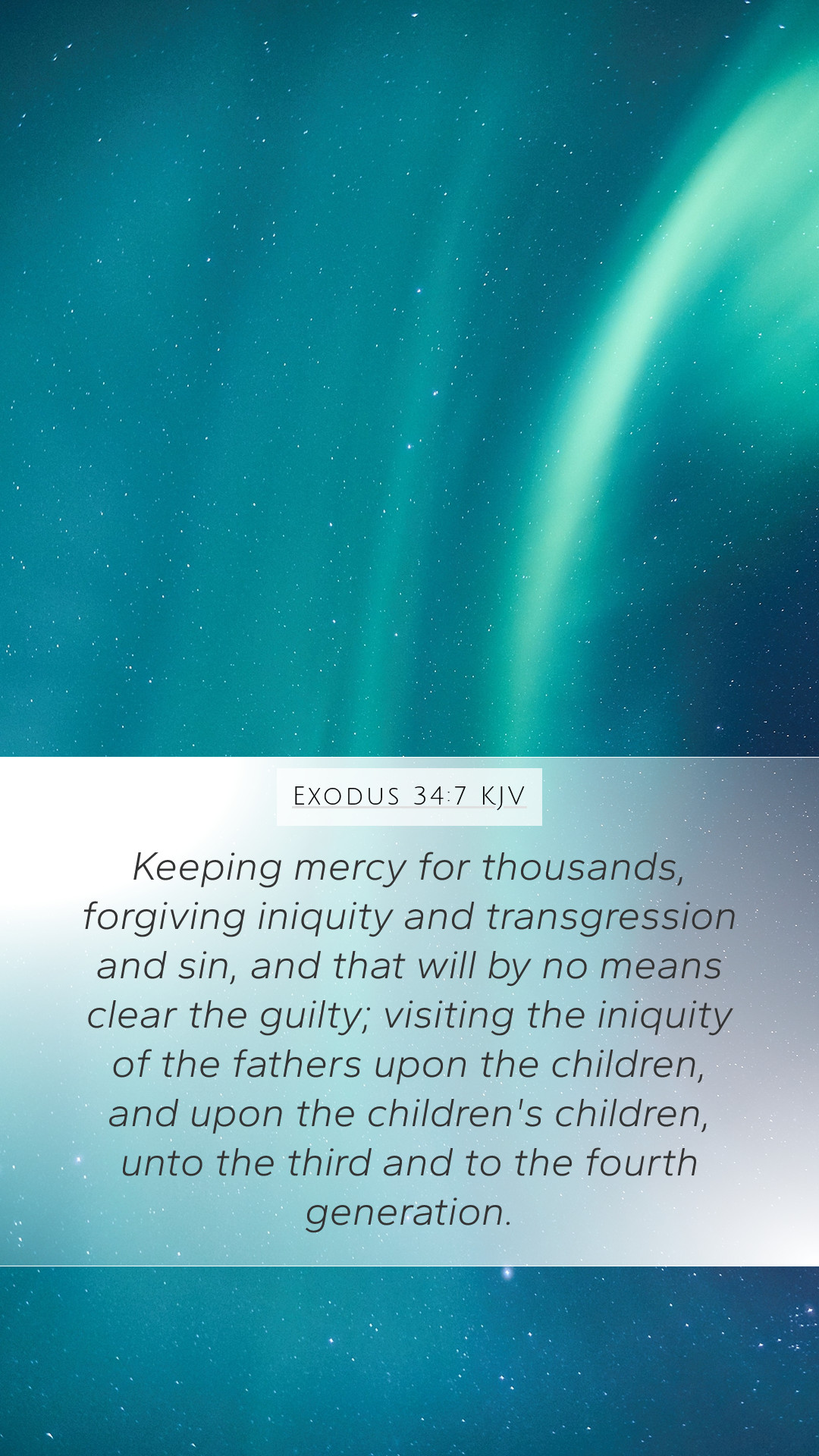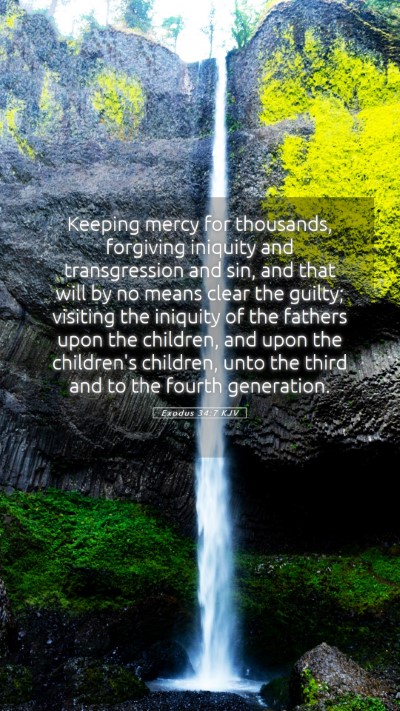Exodus 34:7: Understanding Scripture and Its Meaning
Bible Verse: Exodus 34:7 - "Keeping steadfast love for thousands, forgiving iniquity and transgression and sin, but who will by no means clear the guilty, visiting the iniquity of the fathers on the children and the children’s children, to the third and the fourth generation."
Introduction to Exodus 34:7
Exodus 34:7 provides a profound insight into the nature and attributes of God, especially focusing on His justice, mercy, and forgiveness. This verse elaborates on how God interacts with humanity and sets the stage for a deeper understanding of His covenantal relationship with His people. Here, we combine interpretations and commentary from public domain sources to delve deeper into its meaning.
Key Themes in Exodus 34:7
- Divine Love and Mercy: The verse highlights God's steadfast love, emphasizing that His grace is abundant and reaches out to "thousands" of generations.
- Forgiveness: The text assures believers of God's willingness to forgive iniquities, transgressions, and sins, a central theme in biblical theology.
- Justice: Yet, God does not overlook sin; He holds individuals accountable for their actions, demonstrating that His justice complements His mercy.
- Generational Consequences: The concept of visiting the iniquity upon future generations suggests that actions have long-lasting effects, emphasizing the importance of righteousness.
Bible Verse Meanings and Explanations
The interpretations drawn from various commentaries provide a comprehensive understanding of this verse. According to Matthew Henry's Commentary, the balance between God's forgiveness and justice reflects His character as both loving and righteous. He notes that while God generously forgives, His justice must not be ignored, ensuring that sin has consequences.
Albert Barnes highlights that God's love is not restricted to a select few but extends to a multitude, thus offering hope and comfort to humanity. He suggests that this verse serves as a reminder of the covenant relationship between God and His people, where forgiveness is available but should lead to repentance and transformation.
Adam Clarke's commentary adds further depth by explaining the phrase "visiting the iniquity." He indicates that this serves as a warning about the impact of sin and emphasizes the responsibility that each generation bears for its actions towards obeying God's commandments.
Application in Bible Study
Understanding Exodus 34:7 offers essential Bible study insights for those in Bible study groups or engaging in online Bible study. It provides a framework for discussing the complexity of God's nature and the implications of human behavior on divine relationships. This exploration can enrich Bible study lessons and facilitate Bible study discussions about grace, repentance, and accountability.
By applying the principles from this verse, believers can find practical ways to integrate the concepts of love, forgiveness, and justice in their daily lives, making it a meaningful addition to any Bible study topic.
Cross References to Explore
- Numbers 14:18 - "The Lord is slow to anger and abounding in steadfast love, forgiving iniquity and transgression, but He will by no means clear the guilty."
- Psalms 103:10-12 - "He does not deal with us according to our sins, nor repay us according to our iniquities."
- Romans 3:23 - "For all have sinned and fall short of the glory of God." This connects with the concept of shared human guilt.
Conclusion
Exodus 34:7 serves as a vital text for both personal reflection and communal study. Its rich tapestry of mercy, justice, and the consequences of sin invites deeper exploration and understanding. By engaging with this scripture, believers can cultivate a greater appreciation for God's character and His expectations for humanity.
Through in-depth Bible verse analysis, groups can better discern how to live out these principles in practical, everyday settings, ensuring that their faith is rooted in a balanced understanding of God's nature as presented in the Bible.


